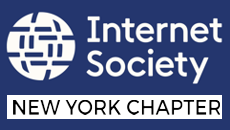New York Tech Council Events next week- Software Patents / Cloud Payment Methods
 The New York Tech Council is presenting two events next week:
The New York Tech Council is presenting two events next week:
Tuesday:
Patent Protection Update: Software and Financial Method Patents
Has the recent U.S. Supreme Court decision in Bilski v. Kappos significantly altered the landscape for business method patents for software and financial processes?
PANEL:
Charles B. “Chuck†Meyer – i2i Resolutions Group
Richard Raysman – Holland & Knight
David Bomzer – Day Pitney
WHEN: Tuesday January 18, 2011, 6:00 PM
WHERE: Herman Miller Design Center, 1177 Ave of the Americas, 17th Fl., NY, NY 10036
RSVP: https://www.nytech.org/event-details.php?eid=1025 ($20)
Wednesday:
Payment Card Security Compliance in the Cloud
PCI-DSS compliance in a cloud environment is a complex subject, fraught with ambiguities. In this event, we explore this issue critical to anyone doing business in the cloud.
SPEAKER:
Matt Tavis – Amazon Web Services
WHEN: Wednesday January 19, 2011, 6:00 PM
WHERE: Eisner Amper, 750 Third Ave., Fl. 16. NY, NY 10017
RSVP: https://www.nytech.org/event-details.php?eid=1026 ($20)

.jpg?resize=300%2C209)
joly 6:30 pm on 01/11/2011 Permalink |
joly 9:25 am on 01/12/2011 Permalink |
Today’s New York Law Journal discusses Bilski including an analysis of the USPTO’s Interim Guidance issued subsequent to the decision.
joly 7:39 pm on 01/19/2011 Permalink |
Acouple of patent-related Techdirt articles from last week:
and, speaking of ridiculous patents: